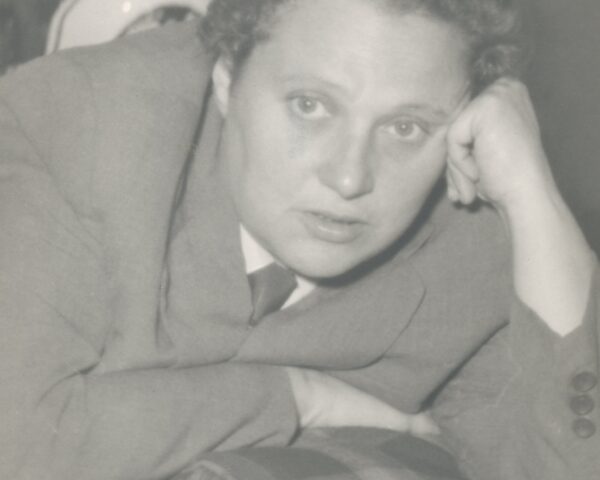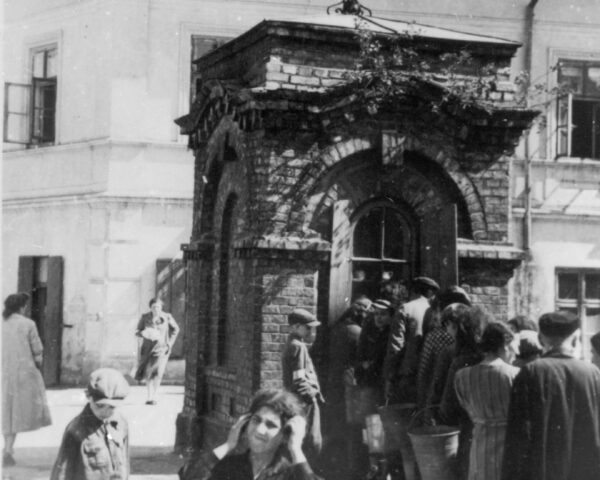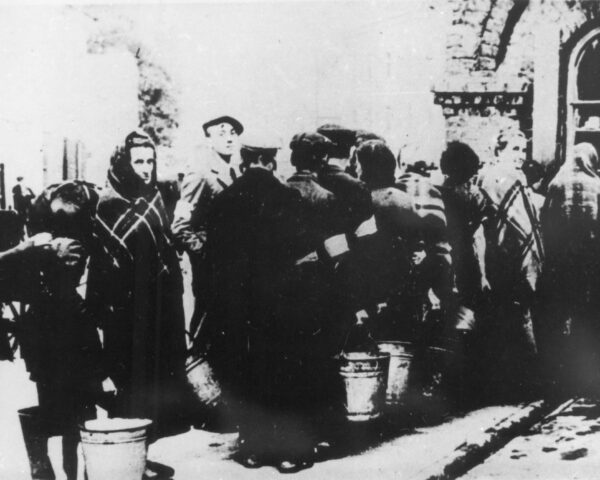“The 1930’s was a period of Antisemitic persecution at the universities. There was a ‘bench ghetto.’ I saw a stamp on my fellow student’s book: ‘May sit only on the left side of the room.’ The National Democrats were rioting, a student was killed in Lviv. If you wanted to spare your children this kind of humiliation, you sent them to study abroad, where it wasn’t that expensive, for example Italy or Belgium. These young people would later return to Lublin after their studies.” Krystyna Modrzewska
Krystyna
Modrzewska

Stage 3 - Discrimination
“The 1930’s was a period of Antisemitic persecution at the universities. There was a ‘bench ghetto.’ I saw a stamp on my fellow student’s book: ‘May sit only on the left side of the room.’ The National Democrats were rioting, a student was killed in Lviv. If you wanted to spare your children this kind of humiliation, you sent them to study abroad, where it wasn’t that expensive, for example Italy or Belgium. These young people would later return to Lublin after their studies.” Krystyna Modrzewska
Krystyna Modrzewska (née Mandelbaum), born 14.09.1919 (September 14th, 1919) in Warsaw
Krystyna Modrzewska came from an assimilated, intellectual Jewish family. She spent the first years of her life in Warsaw, then the family moved to Lublin, where her father was a well-known and respected doctor. She was educated in an elite secondary school with a patriotic attitude, which probably influenced her values. In 1937, she went to Bologna to study anthropology. During her studies, she was baptized and became a Catholic.
Krystyna Modrzewska was spending the summer vacation of 1939 in Lublin, and the outbreak of war made it impossible for her to return to university. Krystyna and her mother were forced to leave their own house. To increase her chances of survival, she changed her identity and adopted the surname Modrzewska. She took on various jobs, from simple manual labor to clerical work, thanks to which she had access to important information and documents, which she passed on to Home Army units. She served in the Home Army herself under the code name “Kret” and from 1941 to 1943 she carried out economic sabotage. This was her way to stand up against discrimination.
During World War II, Krystyna Modrzewska lost almost her entire family. Despite many difficulties, in 1944 she returned with her mother to Lublin. After the war, she dedicated herself to scientific work. She completed her PhD in natural sciences and began working at the university. At the same time, she studied medicine. In 1955, she was awarded a medical diploma and the rank of assistant professor. In the 1960’s, she published her memoirs and personal prose under the pen name Adam Struś. In 1970, influenced by the anti-Semitic campaign and discrimination in professional circles, she emigrated to Sweden. This was an emotionally difficult decision for her, which she summarized by saying “it was not me who left the country, it was the country who left me.” Krystyna Modrzewska changed her surname for the second time, this time taking the maiden name of her mother and her relatives who were murdered in Treblinka. As Krystyna Frenkiel, she worked as a geneticist. In 1980, she received her second PhD and, a year later, her habilitation at Uppsala University.
In her diaries, she described the feeling of being different and a stranger in her own body, which had accompanied her since adolescence. After 1989, Krystyna Modrzewska started to visit Poland regularly, most often Lublin. She died on the 28th of August 2008.
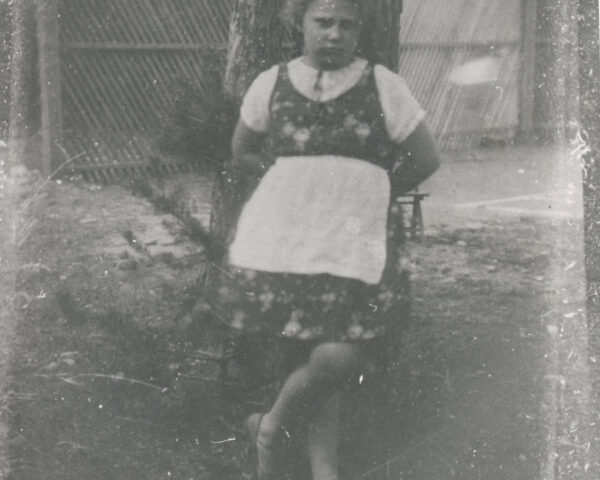
source: Photo Archive of the "Grodzka Gate - NN Theatre" Centre
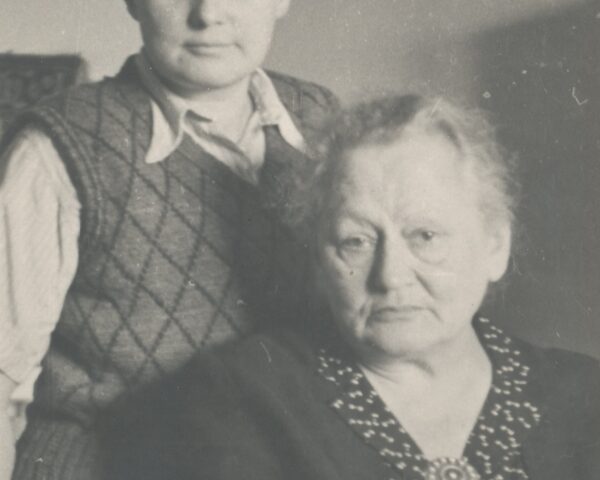
source: Photo Archive of the "Grodzka Gate - NN Theatre" Centre
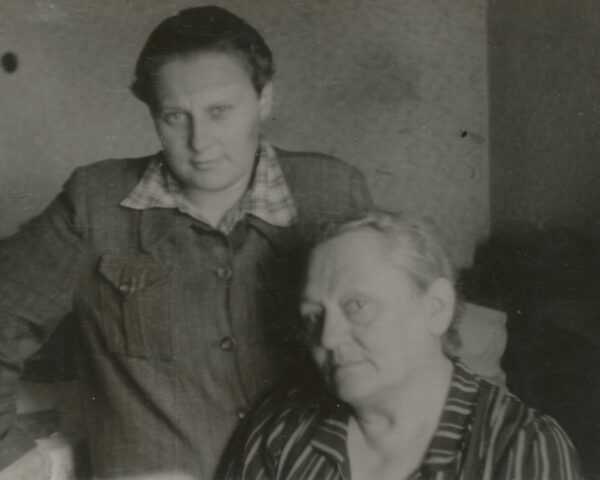
source: Photo Archive of the "Grodzka Gate - NN Theatre" Centre
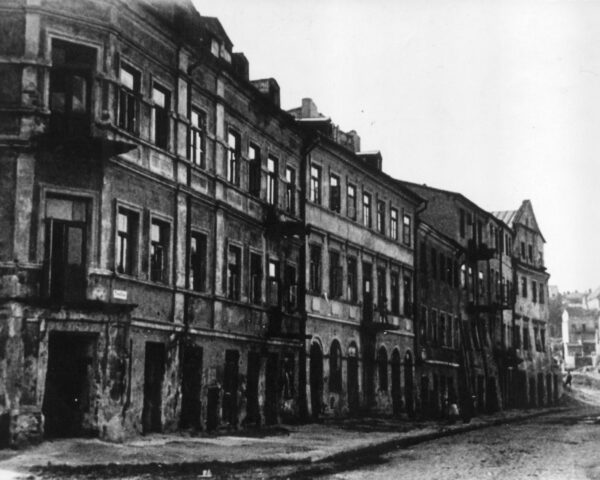
source: collection of Symcha Wajs; Photo Archive of the "Grodzka Gate - NN Theatre" Centre
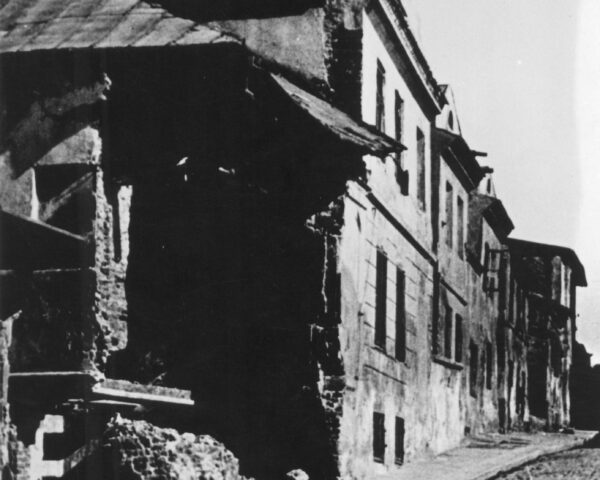
source: collection of Symcha Wajs; Photo Archive of the "Grodzka Gate - NN Theatre" Centre

source: collection of Symcha Wajs; Photo Archive of the "Grodzka Gate - NN Theatre" Centre
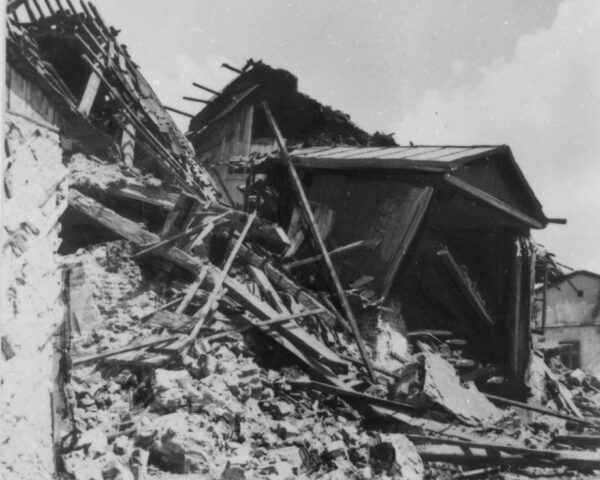
source: collection of Symcha Wajs; Photo Archive of the "Grodzka Gate - NN Theatre" Centre
Discrimination
It is a situation in which a person (or a group of people) is treated less favorably than others in the same situation, is marginalized because of a given characteristic (or several characteristics) gender, race, ethnicity, nationality, religion, creed, worldview, disability, age or sexual orientation or other characteristics. The ideology of the dominant group is often based on existing prejudices, stereotypes, and fears to help win public favor and maintain power.
Discrimination can be countered by granting equal rights to all groups in society, prohibiting discrimination based on race, religion, nationality or other grounds, and allowing people to assert their rights in the courts.
How is this person’s story related to the stage of genocide in G. Stanton’s theory?
Krystyna Modrzewska came from an assimilated Jewish family, and her father was a well-known and respected physician. For some time, this allowed her to live in a kind of “protective bubble.” Over time, due to the rise of anti-Semitic attitudes before the war and the subsequent wartime events, she became a victim of discrimination. As a Polish patriot, she wanted to fight to defend the country, but her Jewish background was reason enough for the commanders not to allow her to do so. Krystyna was also discriminated on a very personal level – as a transsexual person, she was misunderstood by her own family and society, and as a scientist – in the academic circles.
Home Army – Polish: Armia Krajowa (AK), an underground military organisation which struggled for the independence of Poland. The AK was part of the Polish Armed Forces during World War II, subject to the Commander-in-Chief and the government of the Republic of Poland in exile. The organisation was created on 14th February 1942 by order of Commander-in-Chief Władysław Sikorski. It continued the activity of the Union for Armed Struggle (Związek Walki Zbrojnej, ZWZ). The AK operated on the territory of the Republic of Poland which was occupied by Germany and the USSR.

